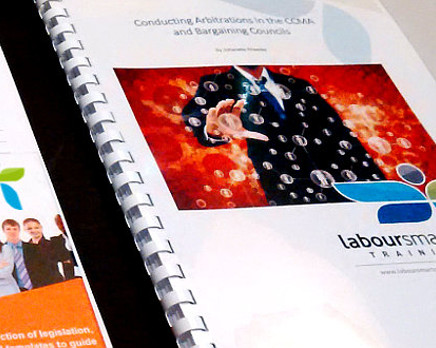Event Title : TD9 - Initiating & Chairing Disciplinary Hearings
- Full Description
Disciplinary hearings are a common occurrence in the workplace and part and parcel of the manager and shop steward’s daily functions. Employees and employers alike are entitled to fair labour practices. Employers must know how to investigate misconduct and charge employees appropriately. This one-day online workshop should be attended by chairpersons, complainants, managers, HR and ER managers and practitioners, legal advisers, shop stewards, and union representatives.
- Modules
- Duration
Module 1 : Introduction
• Why do we have discipline and the Constitutional effect on our workplace
Module 2 : Procedures in labour law
• The disciplinary code
• Procedural and substantive fairness
• Can an employer dismiss for derivative or team misconduct?
• Can I hold a second hearing for the same offence?
• Entrapment
• Double jeopardy
• The minimum requirements for a fair disciplinary hearing
• The right to representation at disciplinary hearings
Module 3 : Discipline and Dismissal
Section 1: Dismissal for misconduct
• Specific forms of misconduct
• Dismissal for misconduct
• Dealing with misconduct outside the workplace
• Dealing with imprisoned employees
Section 2: Forms of discipline
• Types of warnings and when are they appropriate?
• Suspension
• Demotion as alternative to dismissal
Section 3: Unfair dismissals
• Categories of unfair dismissals
• Automatic unfair dismissals
Section 4: Poor performance
• Dismissal for incapacity due to illness and poor performance
• Dismissal while on probation
Module 4 : Unfair labour practices
• Promotion, demotion, probation and benefits
• Unilateral changes to terms and conditions of employment
• Remedies for unfair labour practices
Module 5 : Labour law in general
• Constructive dismissal
• Payment on termination
• How to deal with shop stewards and union misconduct
• Withdrawal of resignations
• Resignation before the hearing
• Breaking the trust relationship
• Legitimate expectation
• Renewal and termination of fixed term agreements
2025 © LabourSmart Training (Pty) Ltd. All Rights Reserved. | Developed and Hosted by Resolve Technology Solutions (Pty) Ltd | SEO by NextG


